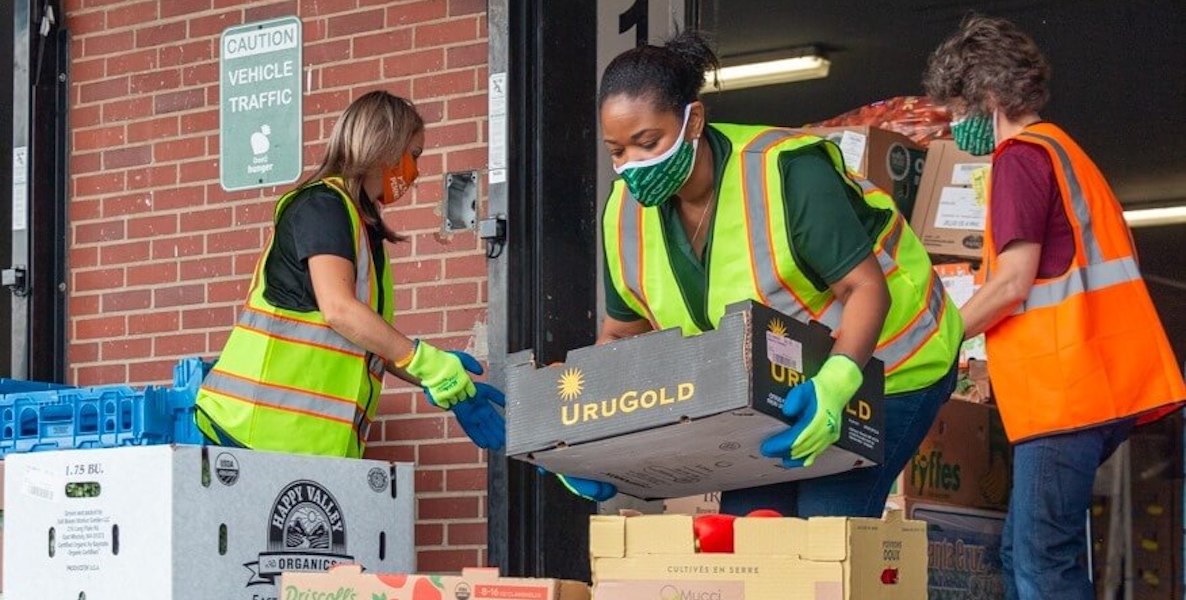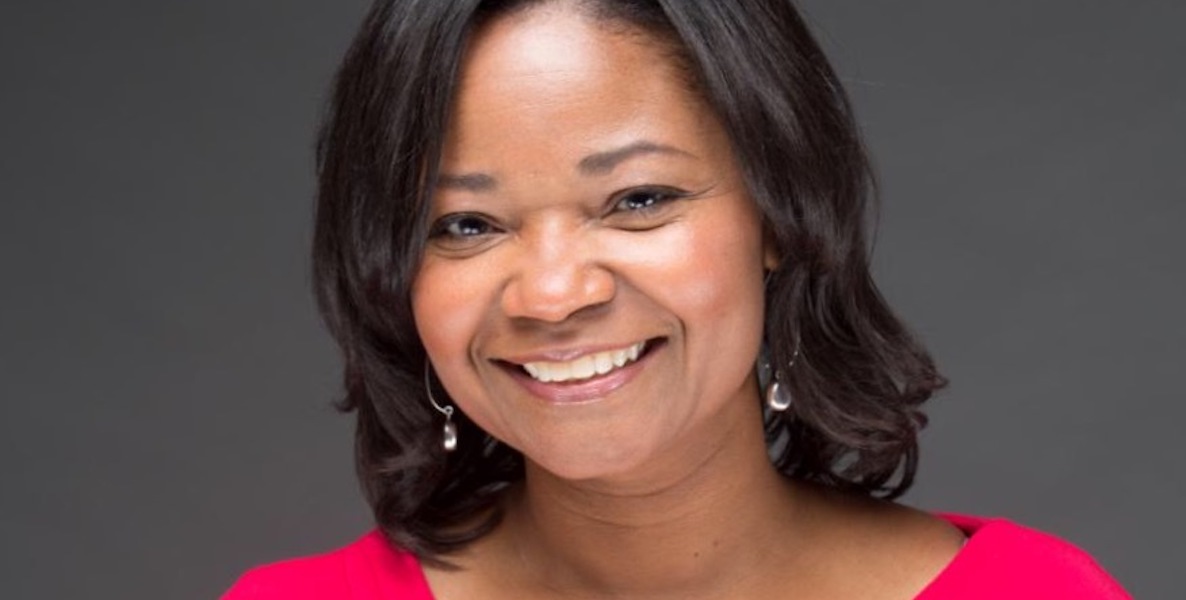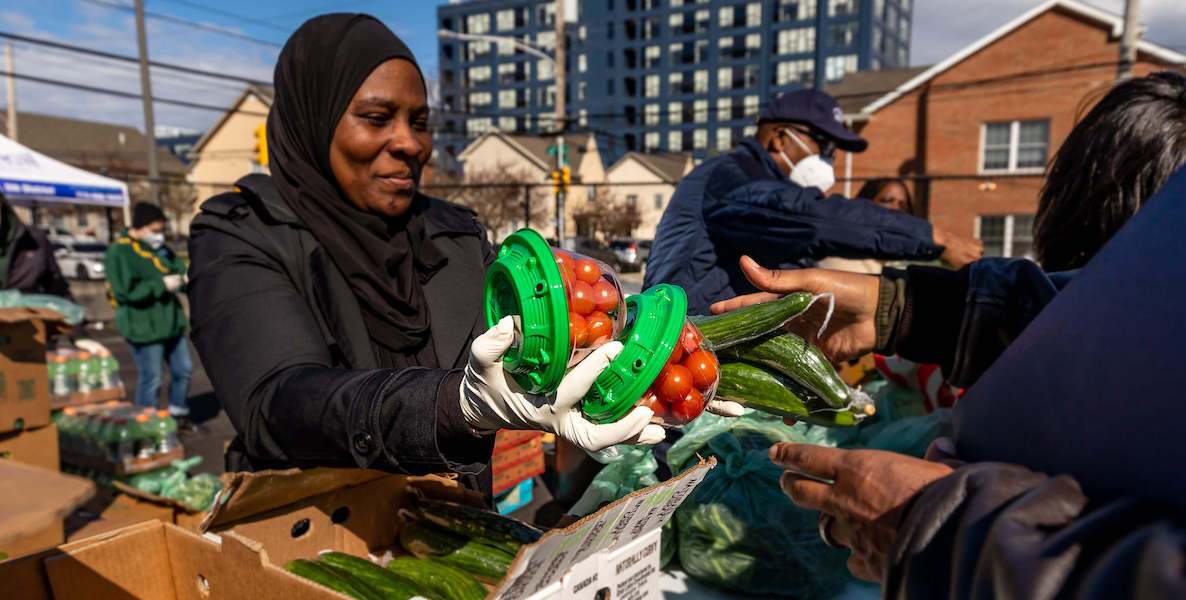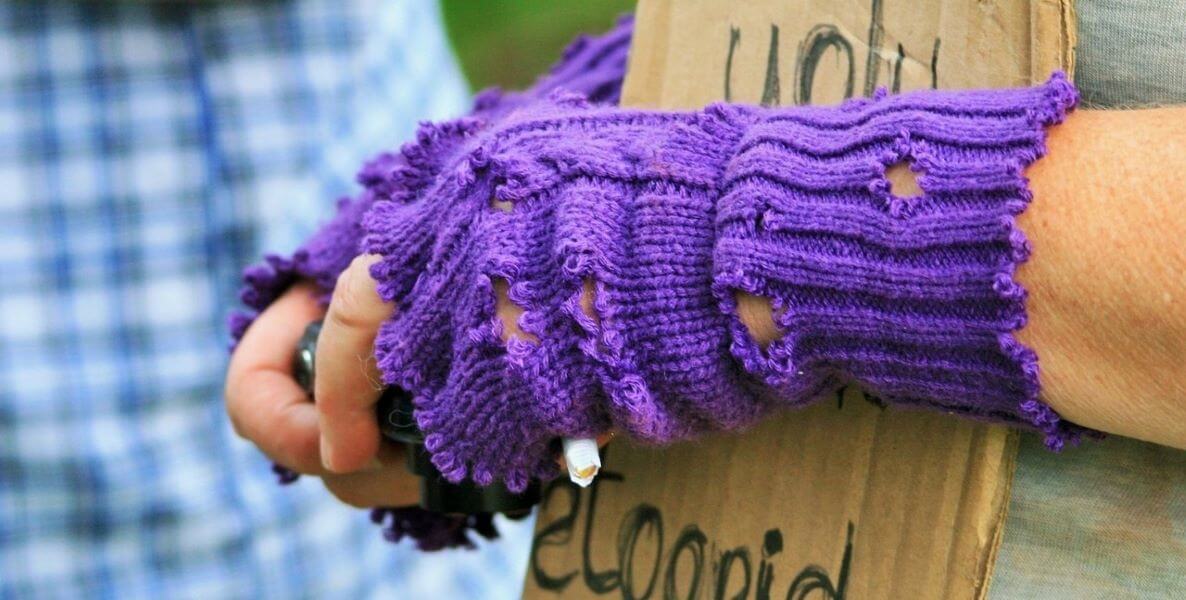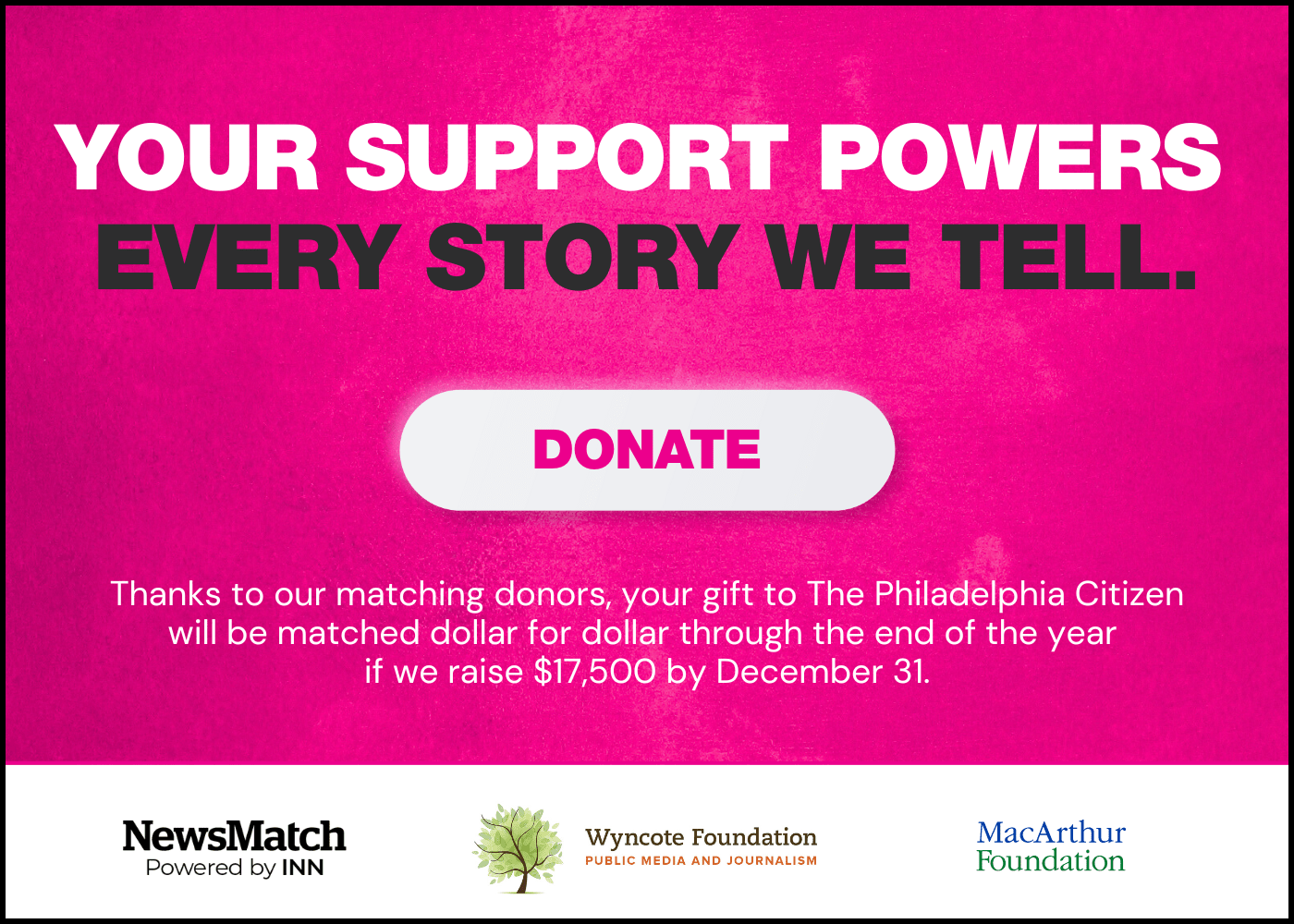Way back in the before times, when Loree Jones first applied to be CEO of hunger-fighting nonprofit Philabundance, it wasn’t really about the food.
![]() Sure, Jones—then the Chief of Staff to the chancellor of Rutgers University-Camden—was impressed with the 35-year-old organization’s mission of feeding people throughout the region, to the tune of some 26 million pounds in 2019.
Sure, Jones—then the Chief of Staff to the chancellor of Rutgers University-Camden—was impressed with the 35-year-old organization’s mission of feeding people throughout the region, to the tune of some 26 million pounds in 2019.
But to Jones, the real impact of Philabundance went beyond addressing hunger right now. She was compelled by the workforce, education and other programs that aimed higher—at making a real dent in poverty, something Jones has worked to address, in one way or another, her whole career.
“I came to this with the idea that we’re going to put ourselves out of business by doing this work,” Jones says. “I was drawn to Philabundance’s ‘end hunger for good’ work.”
Then the pandemic hit and with it, a wave of hunger throughout the region. Between March and the end of May, Philabundance distributed 12.8 million pounds of food—an 83 percent jump over the same time period in 2019. And things were just getting started.
Jones could have walked away from what turned out to be a position with more immediate challenges than she’d planned—after all, she wasn’t even hired yet. But service is in Jones’s DNA. Besides her work at Rutgers, she has served as Managing Director under Mayor John Street; executive director of City Year Philadelphia; and worked for the School District and School Reform Commission.
We checked in with Jones late last week, eight weeks after she started at the agency in the midst of not just a pandemic, but also protests around policing and systemic racism in America. She’s still learning everyone’s name, but is certain of one thing at least: “The people here are heroes.”

Roxanne Patel Shepelavy: So, let’s just start with the fact that you started running Philabundance at an unprecedented time for the world, when we’re facing an explosion of need that you are being called to answer—and that’s likely going to get worse. What is that like?
Loree Jones: I don’t even have the words to address the challenges we face.
 I can’t think of anything worse than folks not having a place to live and food for their families. I came into this work with fresh legs, and a bit of extra energy. The team I get to lead had been on the frontline for weeks, months already. And everyday the rules were changing about how to be distant, how to stay safe, and they had fewer volunteers—many of our partner agencies are run by seniors—and they had to answer the same question everyday: How do you make sure people still get food?
I can’t think of anything worse than folks not having a place to live and food for their families. I came into this work with fresh legs, and a bit of extra energy. The team I get to lead had been on the frontline for weeks, months already. And everyday the rules were changing about how to be distant, how to stay safe, and they had fewer volunteers—many of our partner agencies are run by seniors—and they had to answer the same question everyday: How do you make sure people still get food?
Before I started, I’d been working from home, helping with Rutgers-Camden’s Covid response. I was going to grocery stores, and having trouble finding basics like rice and blackeyed peas, or if it was there, instead of 69 cents it was $2.29. That stuff we felt as middle-class individuals, the supply-chain issues, imagine that as an organization like Philabundance. The team here adapted and responded and was doing more and more.
In this time when you think the world is coming to an end, there are so many people who are providing the most basic services with kindness.
I started on June 2. Think about what was going on in the world? Everybody, all of us, were struggling—with Covid-19, economic fallout, renewed awareness of racism in the country as people were dealing with George Floyd, Arbery Ahmaud, Breonna Taylor. The team are people, they’re processing all that, too.
But the work is the same: Everyday they still have to figure out ways to support people, get food out to folks. So they did. And I got to come into this place where these heroic staff members, volunteers, supporters, board members just kept it going. I feel so grateful, humbled and honored being chosen to lead this organization at this moment.
RPS: You’ve worked in government, education, and nonprofit. What can be done to integrate all of those sectors—and business—to solve problems in Philly, the way they do in other cities?
LJ: I feel like people just have to do it? It does happen—and we need to talk about it when it happens, to codify it.
Anything I’ve been a part of that I’m proud of is because different groups worked together. When I was at City Year, we started looking at the data: We saw that at this point, students with these characteristics were most likely to drop out of school. Then we gathered everyone around and said here’s what we can do, as City Year; teachers and schools here’s your part—creating an environment where students can thrive; nonprofits who know how schools work and what they need, help us with that. And within a few years, we saw a dramatic increase in graduation rates. That was all because of partnerships.
When I worked for the City, we started curfew centers. In a particular police district in the city, we were seeing more young people who were victims and perpetrators of gun violence. So we got all the people together, at 7:30 on a Saturday morning—we had the police, social services, mayor, community members. We came together and said, ok, we have curfew laws. Instead of taking kids who are out to the station, we’re going to take them in and bring them to a community center, where there will be activities, and social services, and we can connect them to what they need. So we did that.
![]() Here, one of the things the team did was work with the City on these new distribution sites; we have hundreds of agencies we work with; we had a great conversation with the City and United Way this week, talking about how at this moment, at this time of unprecedented need, we need to do this together. This problem is too big and too unusual and complex for us to figure out how to solve it all.
Here, one of the things the team did was work with the City on these new distribution sites; we have hundreds of agencies we work with; we had a great conversation with the City and United Way this week, talking about how at this moment, at this time of unprecedented need, we need to do this together. This problem is too big and too unusual and complex for us to figure out how to solve it all.
RPS: You started by saying you want to put Philabundance out of business. What does that even mean in a city with 25 percent poverty?
LJ: Many folks in the nonprofit space say we want to get to a place where we aren’t needed anymore. I know that. And the pragmatist in me knows that’s unlikely.
But we have to set that goal so we can work towards solving it, and I’d like to believe we can make real inroads to address these systematic issues.
For 20 years, Philabundance has had this incredible workforce development program, Philabundance Community Kitchen. It provides culinary skills and training, life skills, case management. It’s been successful at turning out dozens of graduates each round, finding them meaningful work so they can provide for their families. We are about to open a new facility, at 10th and Dauphin, that will over time let us bring in even more students. We know that right now the food industry has some challenges; but the life skills they’re learning help students in other fields as well.
We are also working in Sharswood [in North Philly] with Philadelphia Housing Authority, the local school, health center, Habitat for Humanity and some other nonprofits to develop a theory of change there. (We’re providing food and case management.) We have folks attacking the problem of poverty in a variety of ways—like financial literacy and affordable housing—and figuring out how to address it.
There is also work happening across the city, region and state around social determinants of health. We partner on this as other groups come to us, like the state Department of Human Services.
RPS: Given your vast array of experiences, someone we both know suggested you’d be a great Mayor of Philadelphia. Have you ever thought about running for office?
LJ: I’ve thought about it. I think anyone who works in government has had someone ask that question. At each of those points in my career, I have been so fortunate to be able to be helping people where I am. When I was Managing Director, I was serving all the people in Philly already. And where I am now, through the incredible team here, volunteers, board members and partners, I get to work to make sure people have fresh healthy food.
For people who say being a politician is how they make a difference, God bless you, I’ll send you money, I’ll vote for you. I love that there are people out there that that’s their calling: I loved hearing from the Birmingham Mayor [Randall Woodfin] at your event, I love Stacy Abrams. And there are incredible leaders in Philly and across the region. I get to partner with them to get to improve the lives of citizens.
Between March and the end of May, Philabundance distributed 12.8 million pounds of food—an 83 percent jump over the same time period in 2019. And things were just getting started.
RPS: What’s the through line in all the work you’ve done?
LJ: This will sound really cheesy: It’s commitment to service. One of my favorite quotes is by Marian Wright Edelman: “Service is the rent we pay for being.”
Looking over my life, caring for others either in personal ways for family, or charity is really important. I got that at home. I’m a Girls High Girl; our service club was all about serving others. I went to Spelman College in Atlanta, which has a real commitment to develop women leaders who are changing the world. And I also have that in my religious life as well.
![]() Something that really affected me was when I was working on a degree in history at Princeton, I was also doing an internship at the Germantown Historical Society. That brought us to Project HOME, which is where I first met Sister Mary Scullion. [Jones later sat on the board of Project HOME for several years.] There was also a resident there: She was an African-American woman with a masters degree; I was an African-American woman with a masters degree. And she told us how she ended up homeless.
Something that really affected me was when I was working on a degree in history at Princeton, I was also doing an internship at the Germantown Historical Society. That brought us to Project HOME, which is where I first met Sister Mary Scullion. [Jones later sat on the board of Project HOME for several years.] There was also a resident there: She was an African-American woman with a masters degree; I was an African-American woman with a masters degree. And she told us how she ended up homeless.
I realized that there but for the grace of God go I.
What I loved at Project HOME, and what I see at Philabundance, is that we ensure we do this in a way that’s dignified. Folks are lining up for food; no one wants to be in that position. With Covid, they can’t even pick what they want—it’s, here’s a box.
People are in these positions through no fault of their own. It’s about understanding that they don’t have money because of being laid off. We’re serving people who are all of us, feeding our neighbors. How do we ensure people get the resources they need to address the systemic issue, and how do we make it as dignified as we can? How do we work to make this city, region, country, place better in a way we’d want it to be for us?
The people here are heroes. And there’s this whole network of awesome people. In this time when you think the world is coming to an end, there are so many people who are providing the most basic services with kindness.



